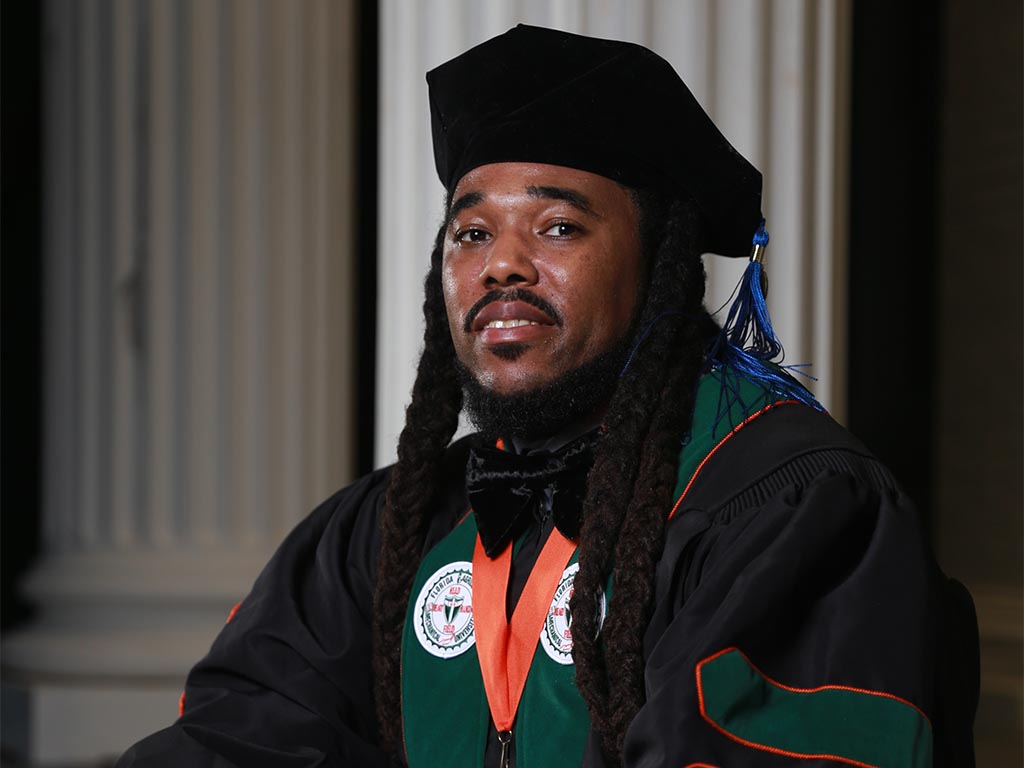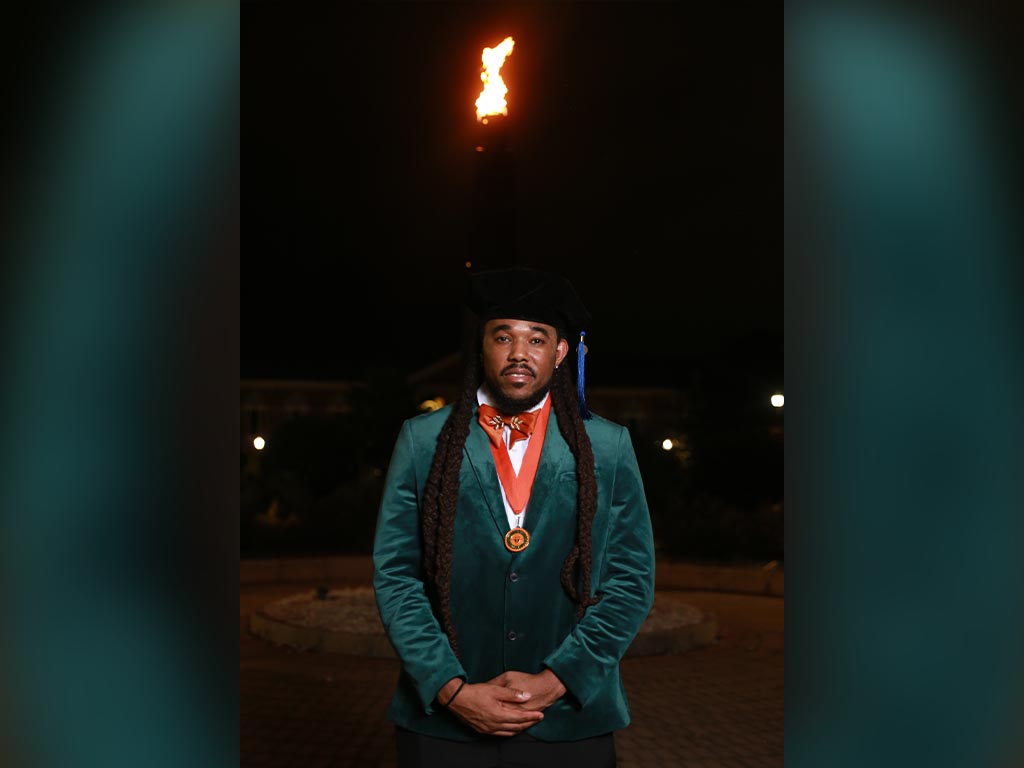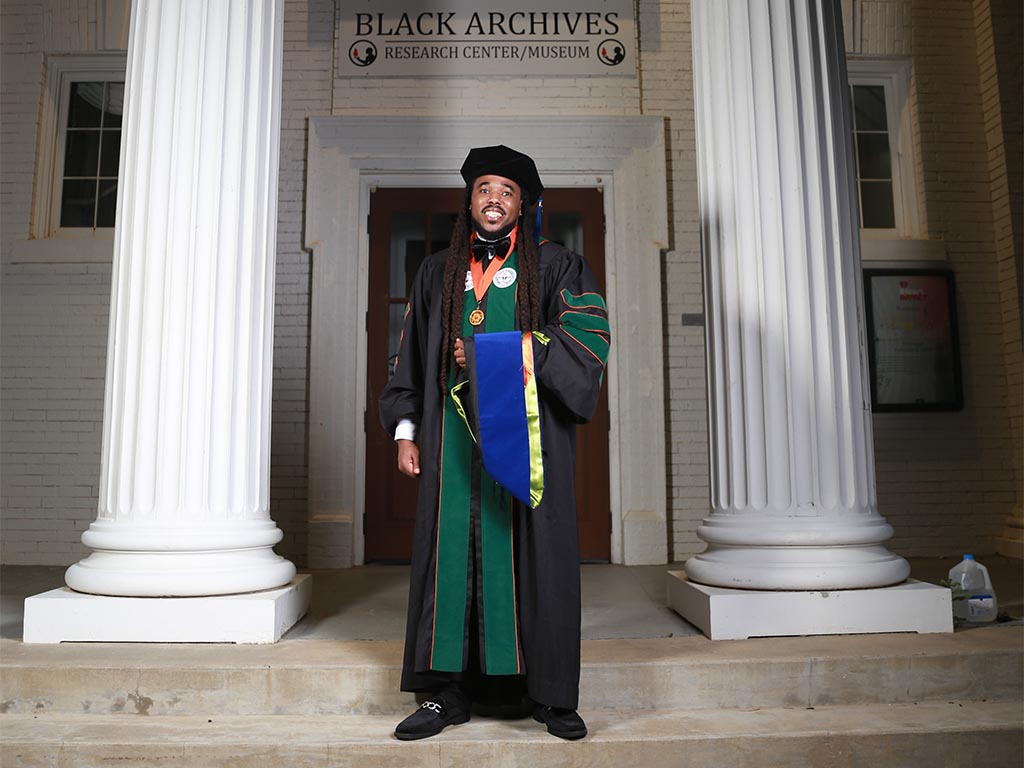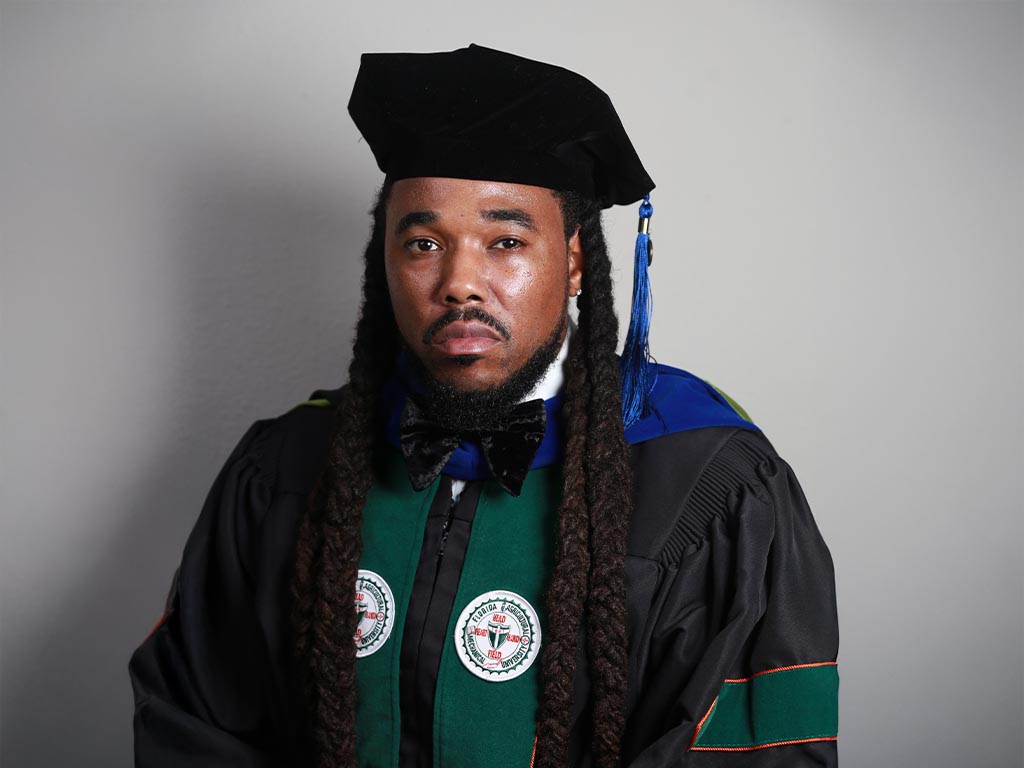Maurice Johnson: Using Hip-Hop, Heart and Higher Learning to Shape the Next Generation

TALLAHASSEE, Fl. — When Maurice Johnson walked across the stage this summer to receive his doctorate in educational leadership, the moment carried more weight than a personal achievement. It was a testament to a journey fueled by culture, community and the belief that education should connect—not separate—students from their lived experiences.
 Dr. Johnson poses at the Eternal Flame, a symbol of FAMU’s legacy and resilience.
(Photo Courtesy of Ernest Nelfrard- Rattlers United)
Dr. Johnson poses at the Eternal Flame, a symbol of FAMU’s legacy and resilience.
(Photo Courtesy of Ernest Nelfrard- Rattlers United)
Johnson’s dissertation explored the intersection of hip hop culture and educational leadership, asking a bold question: How do high school principals and assistant principals—many of whom grew up during the eras of Tupac, Jay-Z, Lil Wayne or Kendrick Lamar—embrace culturally responsive leadership and connect with the students they serve?
“I’ve always believed that learning shouldn’t be difficult or boring,” Johnson said. “It should be something students look forward to. Hip-hop has always been a tool to create that kind of environment. It’s a reflection of lived experiences, and when educators recognize that, the classroom becomes a space where students feel seen.”
That belief shaped Johnson’s teaching style during his years as a professor, first at Florida A&M University, his alma mater, and later at Florida State University, Fort Valley State and Kennesaw State. For his students, Johnson wasn’t just a professor—he was a bridge. By weaving music, cultural references and relatability into his lectures, he built classrooms where dialogue flowed, curiosity thrived and respect was mutual.
 Dr. Johnson in front of FAMU’s Black Archives — where culture and history live on.
(Photo Courtesy of Ernest Nelfrard- Rattlers United)
Dr. Johnson in front of FAMU’s Black Archives — where culture and history live on.
(Photo Courtesy of Ernest Nelfrard- Rattlers United)
“My students would come up to me and say things like, ‘You get us. You understand where we’re coming from,’” he said. “That always meant a lot because I tried to make learning relevant to their lives. Being in tune with them, culturally and academically, made the classroom a place where they wanted to be—and that made all the difference.”
Johnson’s path was far from easy. Unlike many doctoral students, he worked full time while pursuing his degree, balancing the demands of academia, teaching and family. The weight of it all—combined with his deep empathy for students navigating financial, personal and social challenges—often left him drained. Still, he kept going.
“There were times when I wanted to save everybody,” he admitted. “I couldn’t always fix their problems, but I could make sure I didn’t make life harder for them in the classroom.”
Teaching, Johnson said, was never part of his original plan. Yet, in a twist of destiny, his grandmother’s pastor had called him “the professor” when he was just 2 years old. Years later, standing before a classroom of college students, that prophecy felt fulfilled.
 Maurice Johnson takes it all in — officially a Doctor. (Photo Courtesy of Ernest Nelfrard-
Rattlers United)
Maurice Johnson takes it all in — officially a Doctor. (Photo Courtesy of Ernest Nelfrard-
Rattlers United)
From Canton, Ohio, and Detroit roots to a childhood shaped by military bases around the world, Johnson’s life has always been marked by movement. But one constant has remained: his commitment to students. Whether at a historically Black college or university or a predominantly white institution, he carries with him not just knowledge but cultural capital—the ability to connect with students both intellectually and socially.
“My students are my legacy,” Johnson said. “When they come back years later and say, ‘If it wasn’t for you, I wouldn’t have my MBA, or I wouldn’t be making six figures,’ that’s what makes all the sacrifices worth it.”
Now based in Atlanta, teaching at Fort Valley State and Kennesaw State, Johnson is entering a new season defined by balance, peace and the pursuit of greater opportunities. But the mission remains unchanged: using education not as a barrier but as a bridge.
For Maurice Johnson, education is more than a career—it is a calling, a culture and a community. Through it all, he continues to shape the next generation, using hip hop, heart and higher learning as his guiding tools.
“Energy transcends time and space,” he reflected. “Even if I’m not on the Hill at FAMU anymore, the impact continues. That’s what matters.”
Media Contact:
Ashley Flete
Senior Communications Specialist
ashley1.flete@famu.edu

